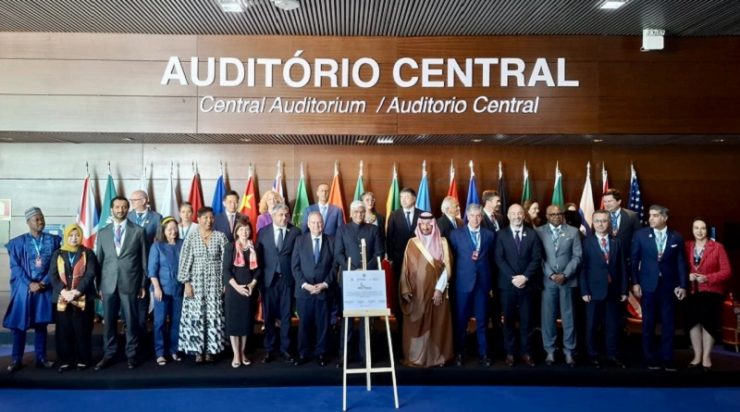INDONESIA (RI), through the Ministry of Tourism and Creative Economy, supports the Belém Declaration, which is the result of an agreement between the ministers and representatives of the G20 tourism ministers at the “G20 Tourism Ministerial Meeting” held in Brazil.
This support is a form of Indonesia’s commitment to promote global tourism and achieve the 17 Sustainable Development Goals (SDGs), which are the main themes of the G20 Tourism Ministerial Meeting and the focus of the Belém Declaration.
According to the Deputy for Resources and Institutions of the Ministry of Tourism and Creative Economy, Martini M. Paham, who personally attended the “G20 Tourism Ministerial Meeting” in Belém, Brazil on Saturday (Sept. 21), said in his statement that Indonesia supports the efforts of Brazil and the G20 member countries to further promote the sustainable tourism sector.
In order to accelerate the achievement of the SDGs, tourism also needs other sectors, especially culture and economy. This is because the SDGs pay attention not only to the environment, but also to the economic and social dimensions.
“Support for the Belém Declaration is crucial for G20 members and the international community to demonstrate the commitment of world leaders to advance the tourism sector in a sustainable and balanced way,” said Martini, Monday (09/23), 2024.
The Belém Declaration is the main document resulting from four meetings of the “G20 Tourism Working Group” held in different cities in Brazil throughout 2024. Starting with online and offline meetings in Brasília and Rio de Janeiro, and the last one in Belém, Brazil.
There are six main points in the Belém Declaration that were discussed in the G20 Tourism Working Group, namely tourism and sustainability; the G20 Tourism Dashboard; human resource development; micro, small and medium enterprises in tourism and destination management; sustainable tourism investment; and cooperation and real action for the future.
The six points of the Belém Declaration are also in line with the five pillars of Indonesia’s 2022 presidency document, the G20 Bali Guidelines.
Martini explained that Indonesia has various flagship programs that have been submitted to the Brazilian Presidency and UN Tourism. There are six flagship programs of Indonesia that can be accessed by the global community through the G20 Tourism Dashboard, including a guide to sustainable tourism destinations, certification of sustainable tourism villages, and the International Tourism Investment Forum.
“Indonesia opens wide opportunities for cooperation with G20 member countries, invited countries and international organizations in the G20 forum to promote the national and international tourism sector,” she affirmed.
Martini M. Paham also conveyed to the G20 TMM the importance of discussing more comprehensively the role of culture and the creative economy in the tourism sector during the South African G20 Presidency next year.
Meanwhile, the Minister of Tourism and Creative Economy in Jakarta appreciated the agreement and the commitment and priorities of the G20 Tourism Ministers and representatives as stated in the Belém Declaration. This is in line with the spirit of innovation, adaptation and cooperation that the Ministry of Tourism and Creative Economy has been carrying.
“The three pillars of innovation, adaptation and cooperation are the keys to building a stronger, more inclusive and prosperous world,” concluded Sandiaga. [traveltext.id]
















